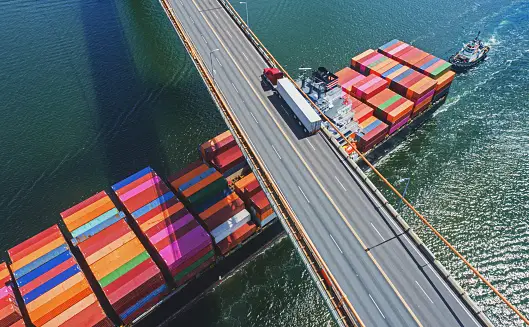Freight forwarders play a critical role in the intricate web of global trade. These specialized logistics experts, as unsung heroes of international commerce, facilitate the smooth and efficient movement of goods across borders. With the world becoming increasingly interconnected, it cannot be overstated how important freight forwarders are.
A freight forwarder at its core is an intermediary between exporters and importers on one hand, and transportation companies on the other. Mainly, they organize and expedite shipping of merchandise from sellers’ doorsteps to buyers’, usually through very intricate international pathways. This includes many activities such as cargo consolidation, customs clearance, documentation processing and arranging sea, air or land transport.
The significance of freight forwarders lies in their ability to navigate through international logistics labyrinth by which every shipment they handle is governed by different regulations, tariffs and laws depending on origin/destination countries. Knowledge about these rules is crucial for freight forwarders to ensure compliance and prevent delays or fines. They often need to overcome challenges including language barriers, cultural differences and time zones variation that require sharp communication skills and flexibility.
Besides these obstacles however, freight forwarders also help to negotiate prices as well as service terms with carriers which use their economies of scale so that clients can access better rates plus services therefore reducing the cost per unit besides enhancing the speed of movement for shipments significantly. This not only helps exporters/importers but also enhances competitiveness in the global market for their products.
Technology has radically transformed how freight forwarders operate by introducing digital tools and platforms that enable them offer faster, more transparent and traceable services thereby improving efficiency (often). Technology has made it easier for them to manage operations efficiently through online booking systems or real-time tracking devices among others hence offering customers improved services level.
However reliance on technology presents new challenges too cyber security threats and data protection become critical as freight forwarders handle large amounts of sensitive information. This therefore requires a strong IT infrastructure and well trained staff in order to maintain the integrity and trustworthiness of their services.
Looking ahead, sustainability, green logistics and continued digitalization of the industry are among trends that are likely to shape the future of freight forwarding. As environmental impacts become more significant globally, it will pressurize freight forwarders into adopting eco-friendlier supply chain practices. At the same time, advances in technology continue to drive improvements in quality and streamlining processes in this sector.
In summary, freight forwarders are indispensable players in global trade. Their expertise in navigating global logistics not only facilitates flow of goods but also supports economic growth and connectivity among nations. These vital intermediaries must respond as international commerce landscape evolves.



